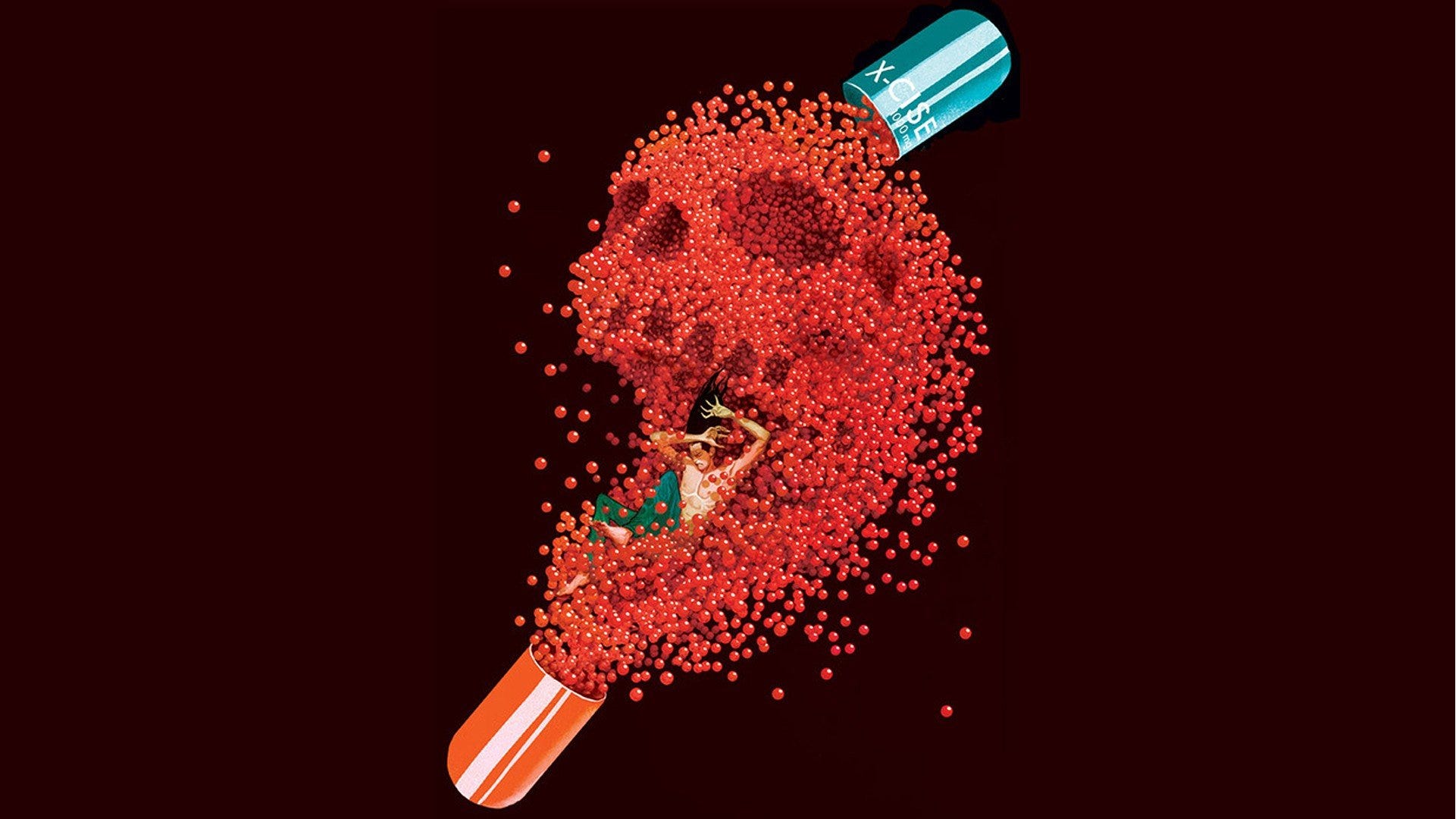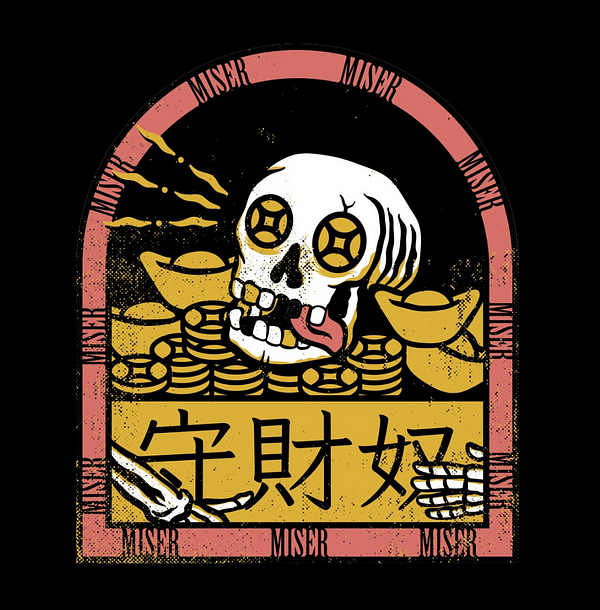
“You’ve showed me I’m not an addict. But I didn’t get any work done. I’d get up in the morning and stare at a blank piece of paper. I’d have no ideas, just like an ordinary person. You’ve set mathematics back a month.” — Paul Erdős
Paul Erdős is one of the most prolific and successful mathematicians in human history. Erdős took amphetamines throughout his early career. He began taking them daily at age 58, when a doctor prescribed them to him to allay the depression associated with his mother’s death and didn’t stop until his death at age 83.
Erdős’ friend once bet him $500 that he could not stop taking amphetamines for a month. Erdős won the bet but complained: “You’ve showed me I’m not an addict. But I didn’t get any work done. I’d get up in the morning and stare at a blank piece of paper. I’d have no ideas, just like an ordinary person. You’ve set mathematics back a month.”
Many of our greatest thinkers have benefited from the use of stimulants, whether it be psychoactive substances from LSD to Ayahuasca or amphetamines or barbiturates.
These thinkers took these substances to push the boundaries of their minds in order to explore and advance the human race. BUT… what about the current use of amphetamines by college students and white collar workers? What about those of us, who are using these drugs to get by, to get the A instead of the B, to be top of their game so they don’t miss a vital strand of information on a multi-million dollar trade?
How did we get here? That is the focus of today’s Thursday Thought.
Scarcity Mindset
A scarcity mindset or scarcity mentality is the belief that there will never be enough and that if someone else possesses something, it means there is less in the world for you. If you have a scarcity mentality, your actions and thoughts always stem from a place of lack. A scarcity mindset is often a result of socialisation, social conditioning, parental upbringing, advertising and media.
Unfortunately, we condition our children from a young age to have a scarcity mindset. We shower them with praise for their achievements rather than their effort. As a result, they associate our love and praise with their successful outcomes, their recognised and measurable achievements. Eventually, money, hierarchy and societally constructed status symbols become the scorecard for their lives and we support this paradigm because this is the one we also live in. If your child was to come home and say she is going to work in an organisation to change the world would you react the same as if she came home to say she is starting with a well recognised global company?
Sports Pressure
In sport, we often witness a child, (who has been improving and forming over years) “appear to” suddenly achieve. Young Timmy has been an average tennis player throughout his youth and suddenly grows into his body at just the right time. People stand up and take notice of him. He wins one tournament, then a second and then a title.
His father and mother heap praise on him and society stand up a applauds him in the local paper, on social media and in person.
He is someone now, he is someone because he has achieved.
After a while, Tim reaches his natural limitations and the attention wanes. A New hero bursts onto the scene and Timmy is yesterday’s news.
Tim hears that some kids are taking steroids, this helps them play better and look better. This is how he can be someone again.
Social Media Pressure?
Weight training is an excellent form of exercise (my own daily one). As we age, we exercise driven by internal motivations rather than external ones. In our youth, we were more likely to have been driven by external drivers such as media and social media.
Today more than ever, there is an unhealthy fascination with body image. This is fuelled by the dopamine rewards received through Instagram, snapchat and other private messengers. When someone likes your photo you get a dopamine release. When no-one like your photo your body releases cortisol. When you are not checking, you are wondering did anyone like your photo, which releases more cortisol and so you keep checking (150 times a day). The magic of maybe coupled with the cocktail of neurochemicals and an unhealthy societal obsession fuels this habit.
You hear some kids are taking steroids to have bigger muscles, to get ripped. You join them, if you don’t you will be the odd one out and you might get left behind.
There is an increase late-teen boys juicing up to bulk up. In many cases, these boys are picking up needles from health care centres and drug addicts are more educated in clean needle hygiene. Anabolic steroids are illegal, so they are being purchased on the black market and can contain any combination of unsafe variations.
Societal pressure is causing our youth to feel inadequate as they are. This is rarely driven by parental pressure or conditioning. However, children have always been encouraged to study and do well in school so they can get a good job and do well in life. It is natural for a parent to want their kids to do the best they can, but what happens when the parent applies too much pressure?
Tiger Parenting
Tiger parenting is a term that came to prominence after the publication of Amy Chua’s ‘Battle Hymn of the Tiger Mother’. The term describes parents who rule the household in an authoritarian way. These parents are focused on the education of their children and the high grades that their children must achieve.
Many tiger parents want their children to succeed so that they get the right job and marry into the right circles. Other parents want a return on the huge investment (especially in the US) they are making in the kids’ education. The parents are making huge sacrifices and working to the point of exhaustion and perhaps even medication to provide for the children so that they may succeed in an increasingly competitive business world.
Just like Timmy, the tennis player who is loved when he succeeds, so too are the children who do well in their exams. They are all too aware of the sacrifices their parents make, we tell them all the time! Just like Tim, who hears of steroids, what if there was a study steroid, one that would give you the edge to perform mentally?
Meducation
On this week’s innovation show, I talk to Pulitzer Prize-nominated journalist and author of ADHD Nation, Alan Schwarz. After his critically acclaimed work on the concussion problem in American Football, he puts his lens on the misdiagnosis of ADHD in America and the many fake diagnoses that kids are obtaining to get their hands on legal amphetamines to help them with their study and exams.
Of the half a million American children taken to doctors and diagnosed with ADHD in 2017, many received thoughtful and reasonable evaluations and benefit from medication. Another sizeable number is seen by casual clinicians who either bypass the child’s real problems or give in to frustrated parents and teachers, who are just looking to quiet the child.
Some adolescents will be faking ADHD just to get ADHD medications for themselves or to sell to others. The 500,000 new diagnostic visits will lead to millions of follow-ups, tens of millions of pills, and hundreds of millions in sales. Lots of business for everyone.
As a result, ADHD will soon be the most frequently diagnosed chronic condition among children, surpassing asthma. Yet research shows that ADHD can’t be that prevalent.
Stephen Colbert dubbed the use of medication to get through exams as “Meducation,” and even profiled a doctor who prescribed Adderall to children without the disorder simply to improve their grades.“
This is a huge mess. There is a lot of money being made from this mess and that makes it even more of a mess to untangle. One thing we can do is look at how we speak, how we engage with our children, our nieces and nephews and ourselves. Are we feeding the conditioning and the pressure? Are we looking out for the signs of medication usage or too much pressure?
A parting thought. Would you encourage your children, nephew, niece, sister, brother to follow your path? to live the way you do?
Would you encourage them to to the best school, get the best job, drive the best car, live in the best neighbourhood, in a state of permanent stress, take anti-anxiety drugs, sleep medication and drink alcohol?
They are headed there, except now they are taking the drugs to get there. If they get there, they will have a new drug to help them cope and a new addiction to overcome.
IF YOU THINK THIS SHOULD BE READ, PLEASE SHARE IT SO OTHERS WILL SEE IT
I highly recommend the stellar research done by Alan Schwarz in ADHD Nation, you can get a feel for the book on the innovation show below. If you like documentaries, check out the excellent “Take Your Pills” on Netflix.
“I struck a match and I didn’t know how much tinder was around” — Keith Conners
On this week’s show, we talk to the author of ADHD Nation, acclaimed New York Times journalist, Pulitzer prize nominee Alan Schwarz.
Alan takes us behind the scenes to tell the full story of this billion-dollar industry.
We talk about the history of ADHD, the history of diagnosis, the marketing of drugs and the mishandling of diagnosis. We also discuss the fake diagnosis problem where pressurised college students are taking ADHD drugs as amphetamines to get through high-pressure college exams.
Have a Listen:
Soundcloud https://lnkd.in/gBbTTuF
Spotify http://spoti.fi/2rXnAF4
iTunes https://apple.co/2gFvFbO
Tunein http://bit.ly/2rRwDad
iHeart http://bit.ly/2E4fhfl
You can find out more about Alan here:


